We’re delighted to offer a selection of latest releases from our core subjects of Child & Youth Studies, History, Performance Studies, and Politics along with our New in Paperback titles.
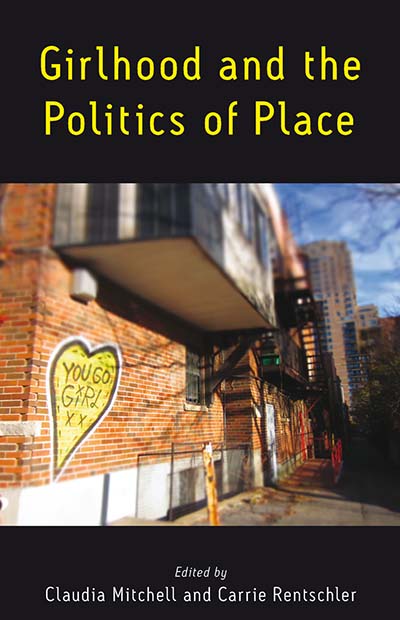 GIRLHOOD AND THE POLITICS OF PLACE
GIRLHOOD AND THE POLITICS OF PLACE
Edited by Claudia Mitchell and Carrie Rentschler
Examining context-specific conditions in which girls live, learn, work, play, and organize deepens the understanding of place-making practices of girls and young women worldwide. Focusing on place across health, literary and historical studies, art history, communications, media studies, sociology, and education allows for investigations of how girlhood is positioned in relation to interdisciplinary and transnational research methodologies, media environments, geographic locations, history, and social spaces. This book offers a comprehensive reading on how girlhood scholars construct and deploy research frameworks that directly engage girls in the research process.
Read Introduction: The Significance of Place in Girlhood Studies
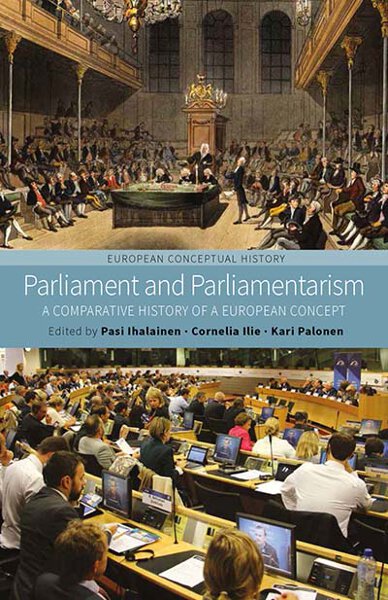 PARLIAMENT AND PARLIAMENTARISM
PARLIAMENT AND PARLIAMENTARISM
A Comparative History of a European Concept
Edited by Pasi Ihalainen, Cornelia Ilie, and Kari Palonen
Parliamentary theory, practices, discourses, and institutions constitute a distinctively European contribution to modern politics. Taking a broad historical perspective, this cross-disciplinary, innovative, and rigorous collection locates the essence of parliamentarism in four key aspects—deliberation, representation, responsibility, and sovereignty—and explores the different ways in which they have been contested, reshaped, and implemented in a series of representative national and regional case studies. As one of the first comparative studies in conceptual history, this volume focuses on debates about the nature of parliament and parliamentarism within and across different European countries, representative institutions, and genres of political discourse.
Read Introduction: Parliament as a Conceptual Nexus
 THE ANATOMY OF MURDER
THE ANATOMY OF MURDER
Ethical Transgressions and Anatomical Science during the Third Reich
Sabine Hildebrandt
Foreword by William E. Seidelman
Of the many medical specializations to transform themselves during the rise of National Socialism, anatomy has received relatively little attention from historians. While politics and racial laws drove many anatomists from the profession, most who remained joined the Nazi party, and some helped to develop the scientific basis for its racialist dogma. As historian and anatomist Sabine Hildebrandt reveals, however, their complicity with the Nazi state went beyond the merely ideological. They progressed through gradual stages of ethical transgression, turning increasingly to victims of the regime for body procurement, as the traditional model of working with bodies of the deceased gave way, in some cases, to a new paradigm of experimentation with the “future dead.”
Read Introduction
 LOBBYING HITLER
LOBBYING HITLER
Industrial Associations between Democracy and Dictatorship
Matt Bera
From 1933 onward, Nazi Germany undertook massive and unprecedented industrial integration, submitting an entire economic sector to direct state oversight. This innovative study explores how German professionals navigated this complex landscape through the divergent careers of business managers in two of the era’s most important trade organizations. While Jakob Reichert of the iron and steel industry unexpectedly resisted state control and was eventually driven to suicide, Karl Lange of the machine builders’ association achieved security for himself and his industry by submitting to the Nazi regime. Both men’s stories illuminate the options available to industrialists under the Third Reich, as well as the real priorities set by the industries they served.
Read Introduction: Adaptation and Opposition in Democracy and Dictatorship
 SHADOWLANDS
SHADOWLANDS
Memory and History in Post-Soviet Estonia
Meike Wulf
Located within the forgotten half of Europe, historically trapped between Germany and Russia, Estonia has been profoundly shaped by the violent conflicts and shifting political fortunes of the last century. This innovative study traces the tangled interaction of Estonian historical memory and national identity in a sweeping analysis extending from the Great War to the present day. At its heart is the enduring anguish of World War Two and the subsequent half-century of Soviet rule. Shadowlands tells this story by foregrounding the experiences of the country’s intellectuals, who were instrumental in sustaining Estonian historical memory, but who until fairly recently could not openly grapple with their nation’s complex, difficult past.
Read Introduction: Shadowlands
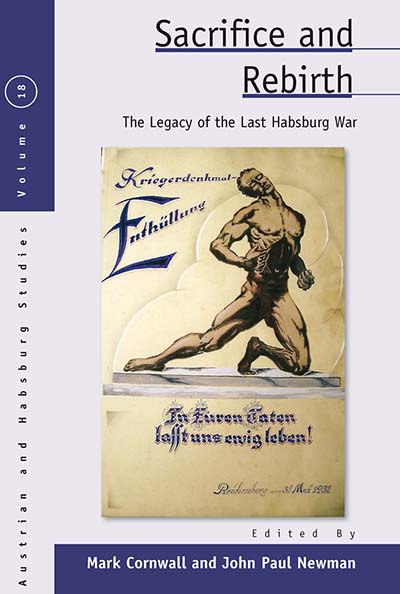 SACRIFICE AND REBIRTH
SACRIFICE AND REBIRTH
The Legacy of the Last Habsburg War
Edited by Mark Cornwall and John Paul Newman
Volume 18, Austrian and Habsburg Studies
When Austria-Hungary broke up at the end of the First World War, the sacrifice of one million men who had died fighting for the Habsburg monarchy now seemed to be in vain. This book is the first of its kind to analyze how the Great War was interpreted, commemorated, or forgotten across all the ex-Habsburg territories. Each of the book’s twelve chapters focuses on a separate region, studying how the transition to peacetime was managed either by the state, by war veterans, or by national minorities. This “splintered war memory,” where some posed as victors and some as losers, does much to explain the fractious character of interwar Eastern Europe.
Read Introduction: A Conflicted and Divided Habsburg Memory
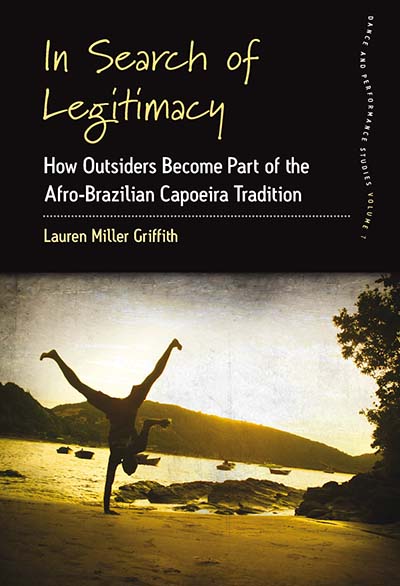 IN SEARCH OF LEGITIMACY
IN SEARCH OF LEGITIMACY
How Outsiders Become Part of the Afro-Brazilian Capoeira Tradition
Lauren Miller Griffith
Volume 7, Dance and Performance Studies
Every year, countless young adults from affluent, Western nations travel to Brazil to train in capoeira, the dance/martial art form that is one of the most visible strands of the Afro-Brazilian cultural tradition. In Search of Legitimacy explores why “first world” men and women leave behind their jobs, families, and friends to pursue a strenuous training regimen in a historically disparaged and marginalized practice. Using the concept of apprenticeship pilgrimage—studying with a local master at a historical point of origin—the author examines how non-Brazilian capoeiristas learn their art and claim legitimacy while navigating the complexities of wealth disparity, racial discrimination, and cultural appropriation.
Read Introduction
 TRUST US
TRUST US
Reproducing the Nation and the Scandinavian Nationalist Populist Parties
Anders Hellström
In Scandinavia, there is separation in the electorate between those who embrace diversity and those who wish for tighter bonds between people and nation. This book focuses on three nationalist populist parties in Scandinavia—the Sweden Democrats, the Progress Party in Norway, and the Danish People’s Party. In order to affect domestic politics by addressing this conflict of diversity versus homogeneity, these parties must enter the national parliament while earning the nation’s trust. Of the three, the Sweden Democrats have yet to earn the trust of the mainstream, leading to polarized and emotionally driven public debate that raises the question of national identity and what is understood as the common man.
Read Introduction: Gaining Credibility in the Public Debate
__________________________
New in Paperback
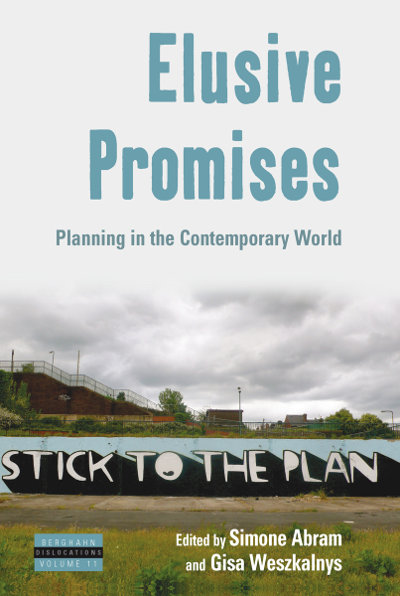 ELUSIVE PROMISES
ELUSIVE PROMISES
Planning in the Contemporary World
Edited by Simone Abram and Gisa Weszkalnys
Volume 11, Dislocations
“This is a much needed contribution by anthropologists to a sustained and broad treatment of planning as a socio-cultural process, utilizing multiple case studies from multiple perspectives and theoretical frames. Some very insightful analyses can be found in the chapters, particularly regarding the vast differences between places and people around the world, and their efforts to organize reality through what would commonly, but perhaps inaccurately, be subsumed under the term ‘planning.’” · Juris Milestone, Temple University
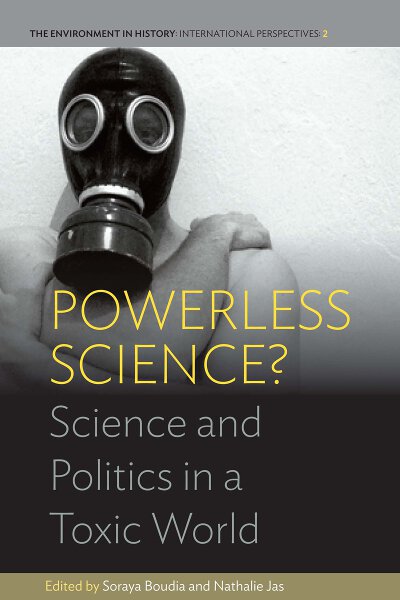 POWERLESS SCIENCE?
POWERLESS SCIENCE?
Science and Politics in a Toxic World
Edited by Soraya Boudia and Nathalie Jas
Volume 2, Environment in History: International Perspectives
“The editors did a heroic job of assembling and connecting a group of articles from contributors active in interdisciplinary research and studies. They span multiple disciplines (sociology, history, philosophy, economics, and political science), assorted methodologies, different time frames, venues, and geographies… In summary, the absence of knowledge has powerfully shaped the history and social organization of our toxic world. And for this reason, Powerless Science? merits reading and reflective rereading.” · International Social Science Review
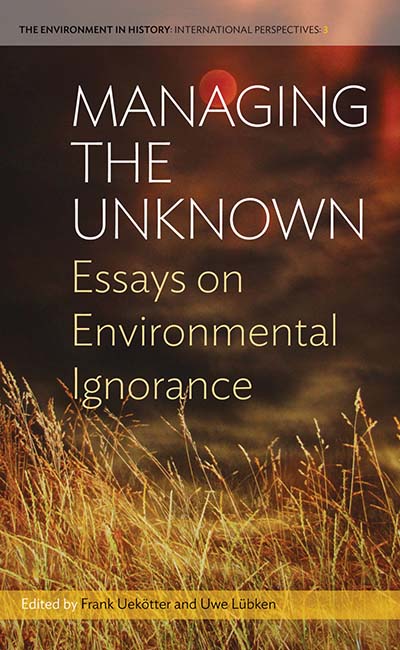 MANAGING THE UNKNOWN
MANAGING THE UNKNOWN
Essays on Environmental Ignorance
Edited by Frank Uekötter and Uwe Lübken
Volume 3, Environment in History: International Perspectives
“This is an interesting and well written set of essays that provides fresh and illuminating insights on many important topics, which makes it indispensible to practitioners and students of environmental history across the globe. Indeed, because it comments on so many topical issues, it should be of interest to anyone concerned about current environmental problems, their origins and possible solutions (especially making manufacturing, forestry and farming sustainable, controlling waste and pollution and finding renewable energy sources). The chapters are of a uniformly high standard and the introduction expertly places them in context.” · Tom Brooking, University of Otago
